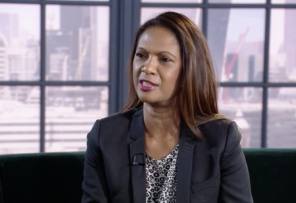

Rising inflation in the UK, in part driven by Brexit talk and the triggering of Article 50's effect on sterling, could spell difficulty for the economy and currency markets, Hargreaves Lansdown has suggested.
In a poll of economists, strategists and fund managers from fund management companies and banks, the Bristol-based advisory firm found the majority of experts believed inflation would overshoot the Bank of England's 2 per cent target in 2017.
According to the results, the median forecast was for the UK to achieve growth of 1.1 to 1.5 per cent in 2017.
However, 75 per cent of the experts anticipated inflation will be higher than the Bank of England’s 2 per cent target by the end of next year, with the most common prediction being 2.6 per cent to 3 per cent.
Chris Saint, currency analyst for Hargreaves Lansdown, said this pointed to the Bank of England facing a "trade-off" between supporting growth and reining in inflation.
The poll also revealed 67 per cent of respondents believed UK interest rates will remain at 0.25 per cent or be pushed even lower a year from now, suggesting the BoE will look through an inflation overshoot as the weaker pound pushes up domestic prices.
Mr Saint said: "The UK economy has held up relatively well in the short time since the referendum, although without clarity on the blueprint for leaving the European Union, the longer-term consequences are still open to debate.
"Exchange rates are determined by the interaction of a diverse range of political and economic factors, including interest rates, inflation and growth, all of which are up for grabs in 2017, which is likely to make for lively currency markets in the coming year."
In terms of sterling's performance - which in 2016 hit a 168-year-low as a result of concerns over the vote to leave the European Union, slightly more than one-third of the experts predicted the pound would lose more ground to under €1.15.
A majority of respondents expected the sterling/US dollar rate to end 2017 at lower than $1.25, with 40 per cent predicting steeper declines to under $1.20.
According to Mr Saint: "Those more hopeful of a sterling recovery tended to point to the extent to which the pound has weakened already. One suggested sterling was 'oversold and will be strong as Brexit fears are already baked into the cake'.
"Another added that 'from current valuations, constructive progress on Brexit negotiations could see the pound rally'."
Mr Saint added: "Political risk is again a common factor cited as a headwind for the euro, with one respondent tipping 'populist politics winning in Europe to weaken EUR'."
simoney.kyriakou@ft.com



